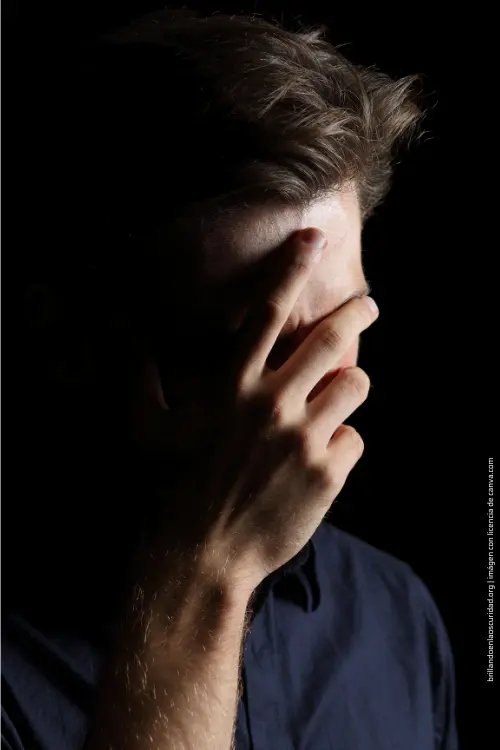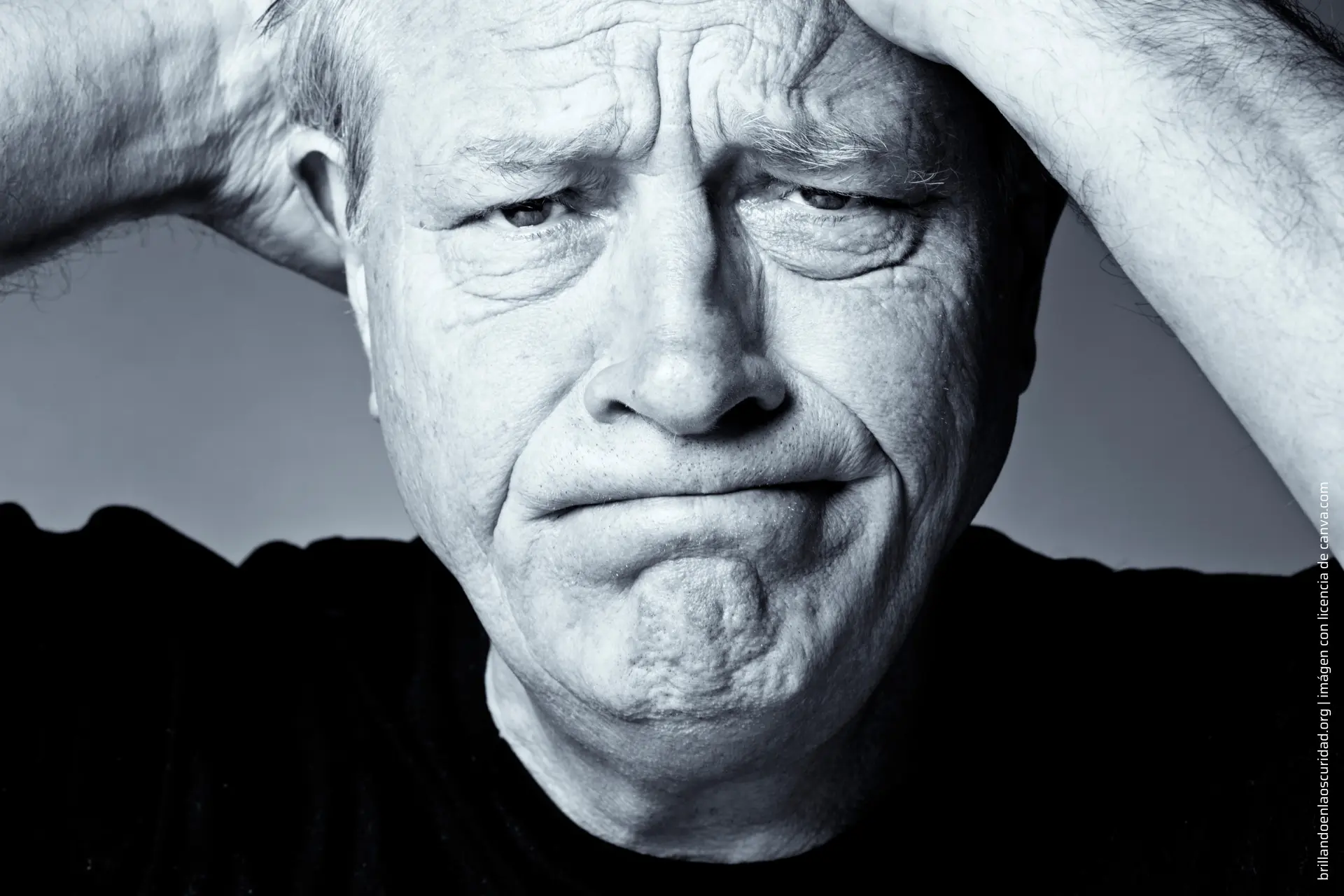In many cultures, there is still a persistent belief that men should be self-sufficient and in control of their emotions, which often results in a significant barrier to seeking psychological help.
This article opens a door to a basic understanding of how hormones influence male behavior, the psychological effects of impotence, the cultural perceptions that impact men, and how this stigma affects male mental health, presenting theories and perspectives that seek to dismantle these biases.
Among the topics visited were the “age of the wolf,” the psychological aspects of hair loss, and andropause, and how these factors affect productivity, well-being at work and career from youth to late adulthood.
The depth of stigma in men’s mental health.
The stigma associated with therapy for men is deeply rooted in cultural norms that equate masculinity with emotional and physical strength. Many men feel pressured to “handle themselves” and view any seeking of psychological support as a sign of weakness or failure.
 Theories and hypotheses about men’s mental health
Theories and hypotheses about men’s mental health
Mental health specialists have developed several theories to better understand the barriers men face. One of these is the **Hegemonic Masculinity Theory**, which suggests that dominant cultural standards of masculinity promote ideals that devalue vulnerability and emotional expression. Another relevant hypothesis is the **Role Incongruence Theory**, which argues that anxiety and psychological distress arise when there is a discrepancy between how men are expected to behave and how they actually feel or wish to act.
Impact of gender norms on therapy.
These theories help explain why many men avoid therapy and how gender norms can be internalized, negatively affecting their psychological and physical well-being.
Strategies for changing the narrative
Including mental health education in school and corporate programs can be key to challenging perceptions. Promoting male role models who speak openly about their experiences with mental health can also be instrumental.
Resources and support for men
Listing and describing specific resources for men, such as helplines, support groups, and therapists who specialize in men’s mental health, can provide accessible options and better understand their specific needs.
Recognizing and addressing the stigma of therapy among men is crucial to the overall health and well-being of society.
Understanding Hormonal Stages in Men and Their Psychological and Occupational Impact
Like women, men go through several hormonal stages throughout their lives, which, along with the changes in perception about life and the world that accompany maturity, can trigger significant psychological challenges.
 Hormones and Male Mental Health
Hormones and Male Mental Health
Men experience notable hormonal changes that can profoundly affect their mental health. During adolescence, increased testosterone catalyzes not only physical but also emotional changes, influencing how young men handle stress and social pressure. As they move into adulthood and middle age, fluctuations in hormone levels can precipitate the so-called “wolf age,” a term that describes a period of introspection and life questioning, often marked by a crisis of identity or purpose.
Hair Loss and Its Psychological Impact
Hair loss is a common phenomenon that many men face with aging. This change can have a significant psychological impact, affecting self-esteem and body image.

The perception of hair loss as a sign of premature aging or loss of youth can lead to episodes of anxiety and depression, affecting both social interactions and job performance.
Andropause: Male Menopause
Andropause, often referred to as male menopause, involves a gradual decline in testosterone production.
This can result in mood swings, fatigue, decreased sex drive, and concentration difficulties, which not only challenge personal but also professional health.
Men may experience a decrease in work motivation or face challenges in maintaining the same intensity in their careers as before.
Impact on Workplace Productivity and Well-Being
These hormonal and psychological challenges significantly affect productivity and well-being at work. Lack of adequate recognition and support in the work environment can exacerbate stress, leading to lower performance and job satisfaction. Companies that recognize and address these issues not only help their employees better manage these changes, but also improve their long-term commitment and loyalty.
Hormones and Behavior in Men: A Detailed Exploration
Hormones play a crucial role in regulating behavior in men, affecting everything from mood to sexual response.
Key Hormones Involved
- Testosterone:
Main male sex hormone, influences libido, aggression, and competition. - Dihydrotestosterone (DHT):
Derived from testosterone, important for male sexual development and linked to male pattern baldness. - Estrogens:
Although predominant in women, men also produce estrogens that play roles in bone and brain health. - Cortisol:
The “stress hormone,” which affects the stress response and can influence anxiety and depression. - Oxytocin:
Known as the “love” or “bonding” hormone, it affects emotional connection and fidelity.
Impotence and its Psychological Effects
The thought of impotence can have a devastating impact on a man’s self-esteem, leading him to experience anxiety, depression, and stress. Concern about sexual ability can profoundly affect intimate relationships and daily social interaction.
Perceived Threats to Sexual Potency
 Situations that men often see as threats include:
Situations that men often see as threats include:
- Chronic health problems such as diabetes or hypertension.
- Side effects of medications.
- Job and financial stress.
- Changes in physical perception and body image.
Specialists and Their Contributions
Dr. Abraham Morgentaler, author of “Testosterone for Life,” explores how testosterone affects various aspects of male health and behavior.
Dr. Shalender Bhasin, an endocrinology specialist, has published extensively on the effects of testosterone in men.
Recommended Reading on Male Mental Health and Hormones
- “Manhood: The Bare Reality” by Laura Dodsworth, which explores masculinity through personal testimonials.
- “The Male Brain” by Louann Brizendine, which details how hormones influence male brain development and behavior.
Hormone and Male Issues Films
- “Fight Club” (1999): Although a critical and stylized look at modern masculinity, it touches on themes of discontent and emotional dissociation.
- “The 40-Year-Old Virgin” (2005): This comedy humorously tackles issues of sexual pressure and expectations of men.
Conclusion
Recognizing and addressing the stigma of therapy among men is crucial to the overall health and well-being of society. Through education, awareness, and ongoing support, we can hope to build an environment where men feel empowered and safe to seek help when they need it.
It is crucial that society and work environments recognize and adapt to the changing needs of men as they move through their life stages. Providing resources such as psychological support, wellness programs focused on men’s health, and a work culture that promotes a healthy work-life balance can mitigate the negative effects of these hormonal transitions and maximize men’s well-being and productivity at all stages of their lives.
But it is also true that the family environment is a fundamental factor in mental health, whether male or female. In a couple, when one of you is going through a difficult time, the home environment can be your best ally or your worst enemy. In the article “Help!My partner is on a different wavelength: Navigating the waves of life changes“, we prepared some fun content that can help you with this topic.
A holistic approach would not only benefit individuals, but also have a positive impact on their families and communities, promoting a vision of masculinity that values mental health as an essential component of wellness.



